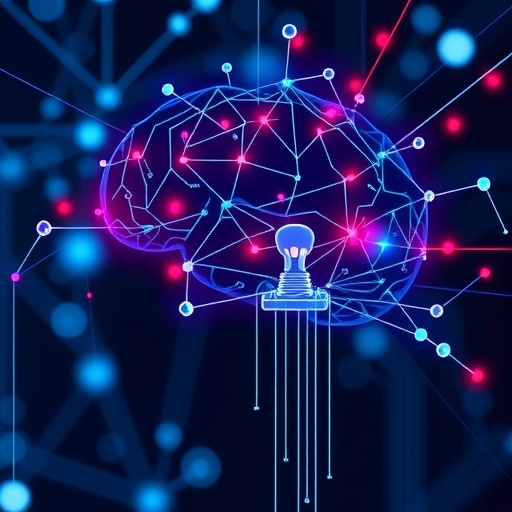The integration of artificial intelligence (AI) and multimodal data into educational practice is reshaping the landscape of self-regulated learning (SRL). The recent systematic review conducted by de Mooij, Lämsä, Lim, and their colleagues offers an in-depth examination of these transformations. This scholarly article, published in the Educational Psychologist Review, explores how enhancing the learning experience through these innovative tools can lead to significant improvements in learner autonomy, personalized education, and educational outcomes, marking a crucial advancement in the field.
The review underscores that self-regulated learning is an essential skill for students in today’s fast-paced, information-rich environment. It highlights the necessity for learners to take ownership of their learning processes, set goals, monitor their progress, and reflect on their experiences. With the advent of AI technologies, learners can be equipped with tailored strategies that cater to their individual needs, thus promoting a more engaged and proactive approach to education.
At the heart of the study is the systematic analysis of multiple studies that have utilized AI systems to facilitate SRL. By pooling data from various sources, the researchers were able to identify effective techniques and assess the role of adjustments in pedagogical strategies to foster self-regulation. The findings reveal the symbiotic relationship between technology and educational psychology, indicating that AI can effectively assist learners in navigating through their educational journeys more independently.
The review also delves into the use of various data modalities such as behavioral, physiological, and emotional indicators. By employing a multimodal approach, educators and researchers can gather a comprehensive understanding of each learner’s progress and challenges. Such depth of data allows for richer insights into how learning unfolds and highlights areas where students may require additional support, thus tailoring the educational experience to better meet individual learning profiles.
One of the significant findings emphasized in the review is the importance of designing adaptive learning environments. The researchers argue that with the help of AI, educational systems can dynamically adjust the learning activities based on real-time data analysis, offering a more personalized learning trajectory. This adaptability is vital for maintaining student engagement and motivation, particularly when learners encounter challenges.
Additionally, the article discusses the potential risks associated with the increasing reliance on AI in education. Concerns regarding privacy, data security, and the ethics of AI usage in schooling contexts are significant. Organizations and educators must tread carefully, ensuring that they adhere to ethical standards while maximizing the benefits of AI technologies in promoting self-regulated learning.
Another highlighted aspect is the development of self-regulatory skills through technology integration. The review notes that when AI systems provide feedback on learners’ performance, they help cultivate metacognitive skills necessary for effective self-regulation. By understanding their strengths and weaknesses, students can engage in more effective goal-setting and self-monitoring strategies, leading to improved academic performances.
The review addresses the need for ongoing professional development for educators as they begin to incorporate AI tools into their teaching methods. Teachers will need to adapt their pedagogical approaches, learn how to interpret data provided by these systems, and understand how to guide students in utilizing them for their learning benefit. This shift emphasizes the continuous evolution of the role of educators in an AI-integrated learning environment.
Furthermore, the study discusses future research directions, suggesting that further investigations should explore long-term effects of AI-assisted SRL approaches on academic success and personal development. Understanding the implications of these technologies will be crucial for shaping future educational policies and strategies aiming at fostering self-regulation among learners in diverse contexts.
Indeed, as the review suggests, successful integration of AI and multimodal data in education hinges on collaboration among researchers, educators, and technologists. By pooling their expertise and resources, these stakeholders can develop innovative solutions that support self-regulated learning and enhance overall educational experiences.
In terms of practical applications, this research demonstrates that personalized learning pathways facilitated by AI have the potential to democratize education. By making learning more accessible and suited to individual needs, students from various backgrounds and abilities can thrive. Ultimately, this may contribute to reducing educational inequalities and ensuring that every learner reaches their full potential.
The implications extend beyond individual learning experiences, reaching out to systemic changes within educational institutions and policy-making. As the understanding of effective self-regulated learning strategies deepens, educational systems can adopt policies that integrate technology holistically, ensuring that AI serves as a robust partner in the learning process rather than merely a tool for measurement or assessment.
In conclusion, de Mooij and colleagues’ systematic review on self-regulated learning, through the lens of multimodal data and AI integration, presents a powerful narrative for the future of education. As we stand at the confluence of technology and pedagogy, the findings of this study highlight the transformative potential of AI in fostering learner autonomy, thereby shaping the very essence of educational engagement and outcomes.
Subject of Research: Self-Regulated Learning through Integration of Multimodal Data and Artificial Intelligence
Article Title: A Systematic Review of Self-Regulated Learning through Integration of Multimodal Data and Artificial Intelligence
Article References:
de Mooij, S., Lämsä, J., Lim, L. et al. A Systematic Review of Self-Regulated Learning through Integration of Multimodal Data and Artificial Intelligence.
Educ Psychol Rev 37, 54 (2025). https://doi.org/10.1007/s10648-025-10028-0
Image Credits: AI Generated
DOI: 10.1007/s10648-025-10028-0
Keywords: Self-Regulated Learning, Artificial Intelligence, Educational Technology, Multimodal Data, Personalized Learning




